How communities in Uganda are adopting sustainable solutions to sanitation through the Paid to Poop project
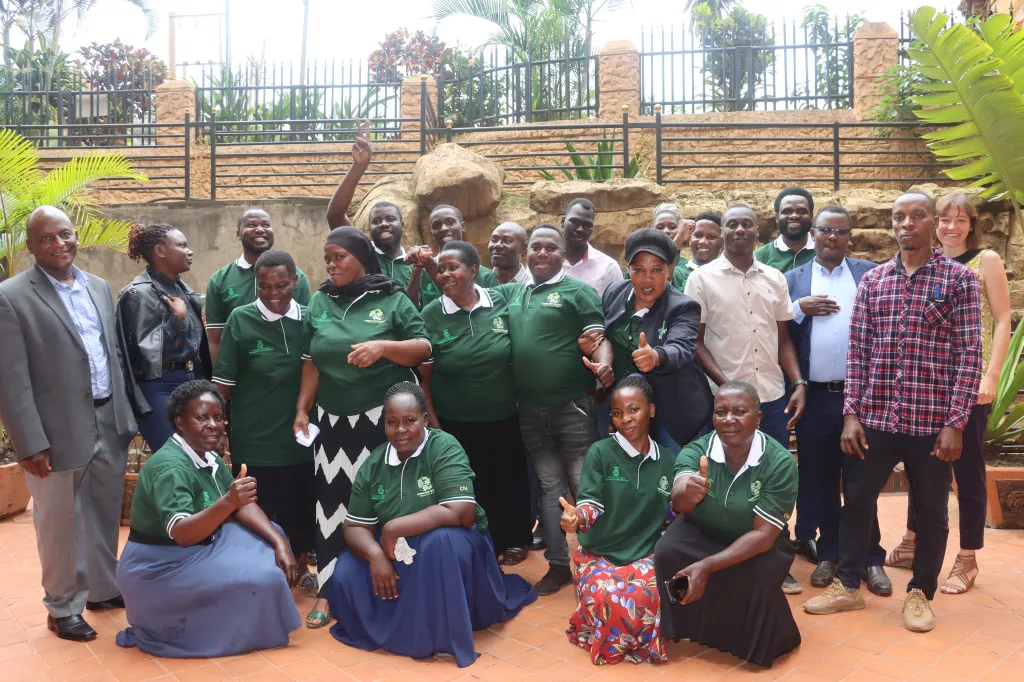
Paid to Poop is formed around three different clusters: community cluster, technology cluster, and business cluster, working together towards sustainable sanitation.
“If the toilets create value for the community, then the community would want to use and maintain them so that they improve on sanitation and earn a living from the fertilizers.” Fiona Hazell- Founding Partner, MAD (Make A Difference) Foundation.
How it started
In 2020, MAD Foundation approached ForumCiv with the aim of working together towards improving sanitation issues in Uganda. The idea was to support community initiatives in Bwaise slum, Kampala. They brought together a constellation of organizations that included SSPP, Swedish University of Agricultural Sciences (SLU), Makerere University in Uganda, Sanitation Africa in Uganda, and Harvest Moon in Sweden.
ForumCiv and SSPP are working in the community cluster, leveraging on the Right(s) Way Forward (RWF) methodology to train the community on how to advocate for their rights and productively engage with the duty bearers. SSPP are a local NGO in Uganda working directly with the community to improve lives through Water, Sanitation and Hygiene (WASH) and livelihood programmes.
The Swedish University of Agricultural Sciences on the other hand are working together with Makerere University in the technology cluster, extracting nutrients from human waste and turning it into affordable fertilizers. They also test the fertilizers in greenhouses to confirm quality and consistency.
Harvest Moon on the other hand are working with Sanitation Africa in prototyping toilet systems like the container-based sanitation toilets that can be locally used to collect human waste, processed into fertilizers and either used or sold by the community. This is how the business aspect ties in.
The technology and research
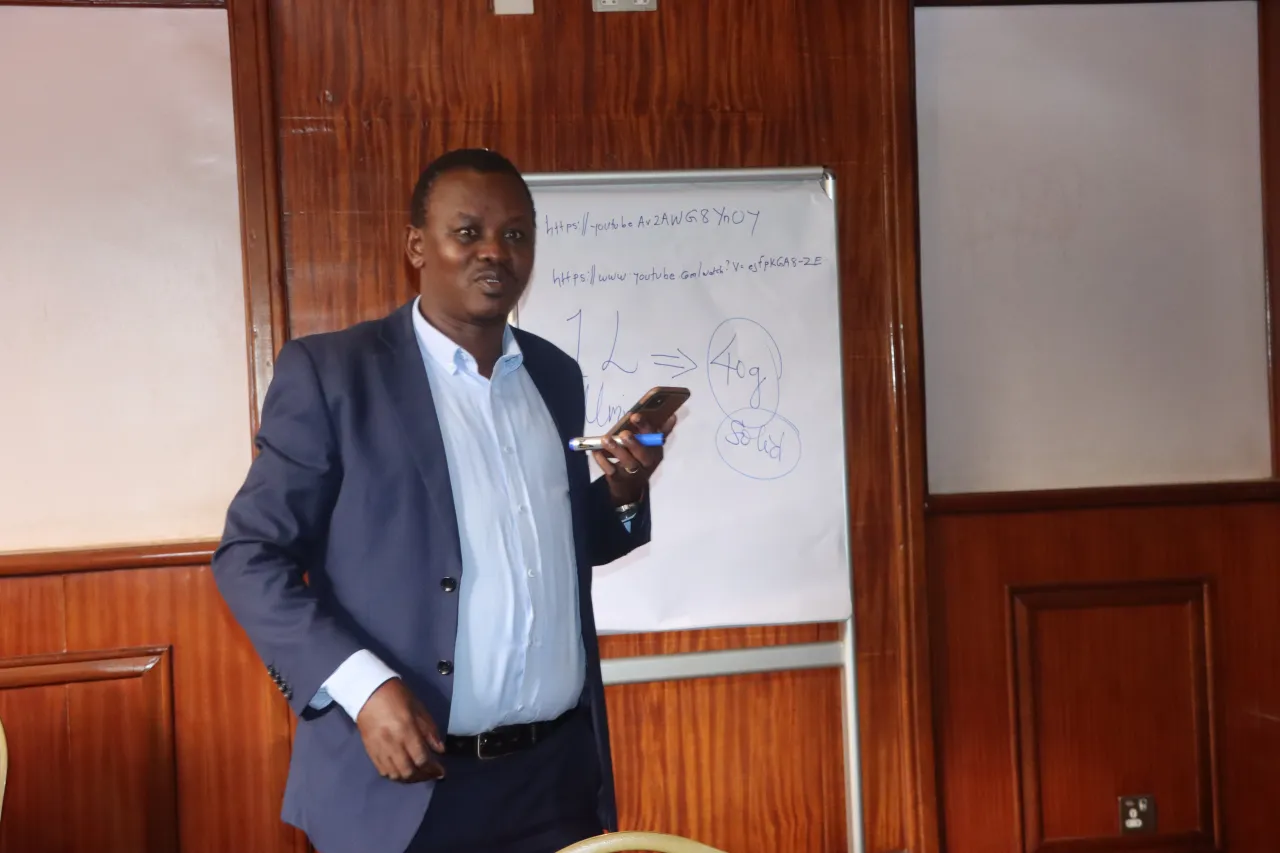
According to Dr. Charles B Niwagaba, an Associate Professor in the Department of Civil and Environmental Engineering at Makerere University, every liter of urine can produce up to 40gms of solids after drying. The main nutrients required from the extract are Nitrogen, Phosphorous, and Potassium, otherwise referred to as NPK. However, the Nitrogen is difficult to capture during the drying process and requires some stabilization to retain it.
If the dehydration is done properly, Professor Niwagaba expects a fertilizer with a nitrogen content of between 10-20%, which is at par with the popular fertilizers in the market but can be sold at half the price.
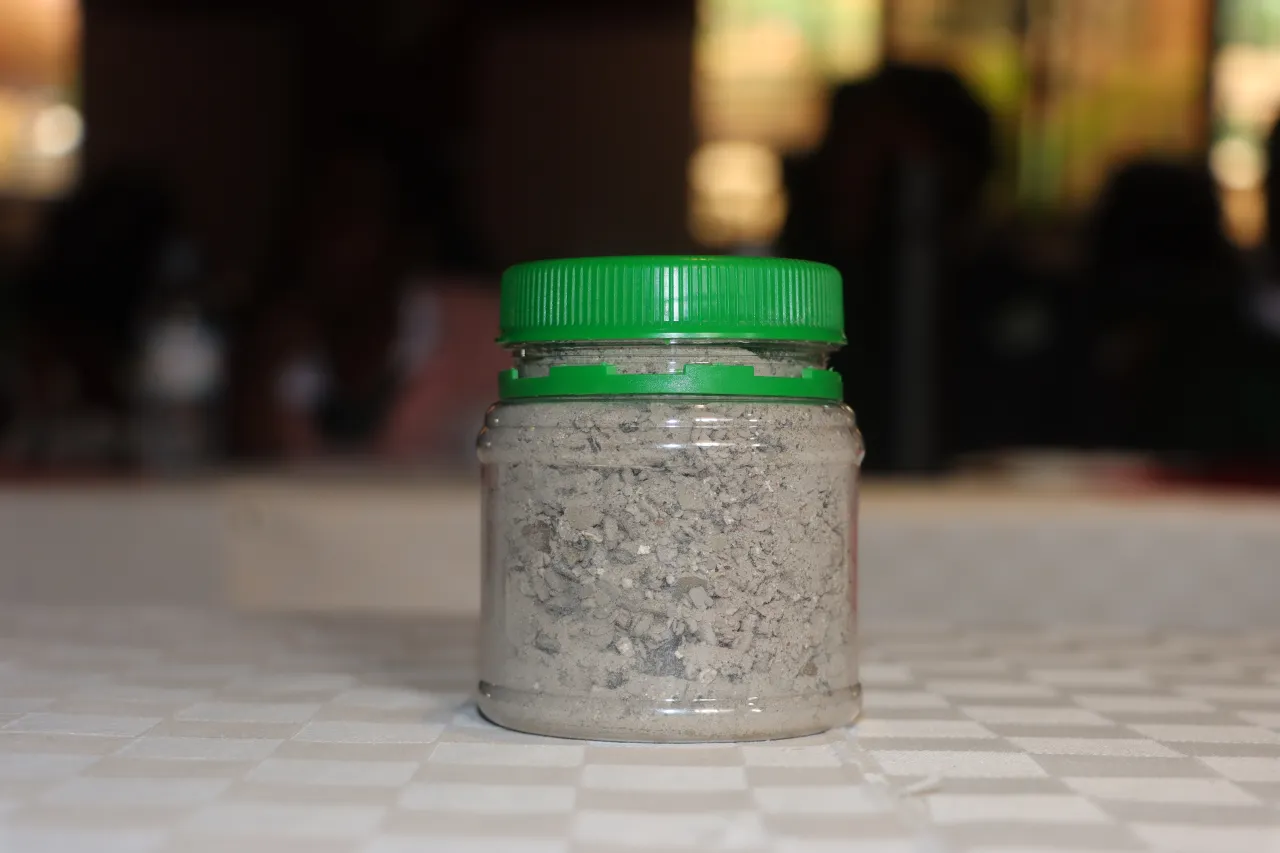
Professor Niwagaba together with Onesmus Semalulu, a Principal Research Officer at the National Agricultural Research Organization (NARO) have been working together to produce and test the eligibility of this fertilizer.
“We are analyzing the nutrient composition of the fertilizer in batches to ascertain the consistency and then use it to grow maize. We expect to start seeing results in early 2024 and we will be able to ascertain whether it is worth investing in the production of this fertilizer.” Onesmus Semalulu- Principal Research Officer, NARO.
With the huge population in Kampala, Professor Niwagaba believes the city can produce over 3 million liters of urine daily, translating to huge quantities of cheap but quality fertilizers. The challenge now would be maximizing the collection so that little is wasted.
The Right(s) Way Forward and the role of ForumCiv
Ian Calvin Waiswa, the founder and CEO of SSPP says, “when we joined the project, ForumCiv proposed an organized approach of the Right(s) Way Forward methodology. This methodology was not alien to us because it was fostering us and organizing us in the models we were using in the community-led sanitation programme. But it gave the community an opportunity to learn resource mobilization skills so that they not only appreciate the problems they have but they can lobby for solutions within the community by themselves.”
ForumCiv trained fourteen community facilitators who have taken lead as champions in the implementation of the Right(s) Way Forward process in the project. Moreover, ForumCiv supported the community facilitators in organizing community workshops and eventually the development of Community Action Plans (CAPs).
Through the trainings, workshops, mentorships and capacity development sessions, the community was able to hold multi-stakeholder dialogue sessions and organize themselves to form a cooperative society.
“When the training started in 2021, the community identified waste as one of their biggest challenges. During the trainings, the community decided to formalize and register a cooperative; the Kawempe Waste Recyclers, which was officially certified in 2023.” Ian Calvin Waiswa- Founder and CEO, SSPP.
Kawempe Waste Recyclers
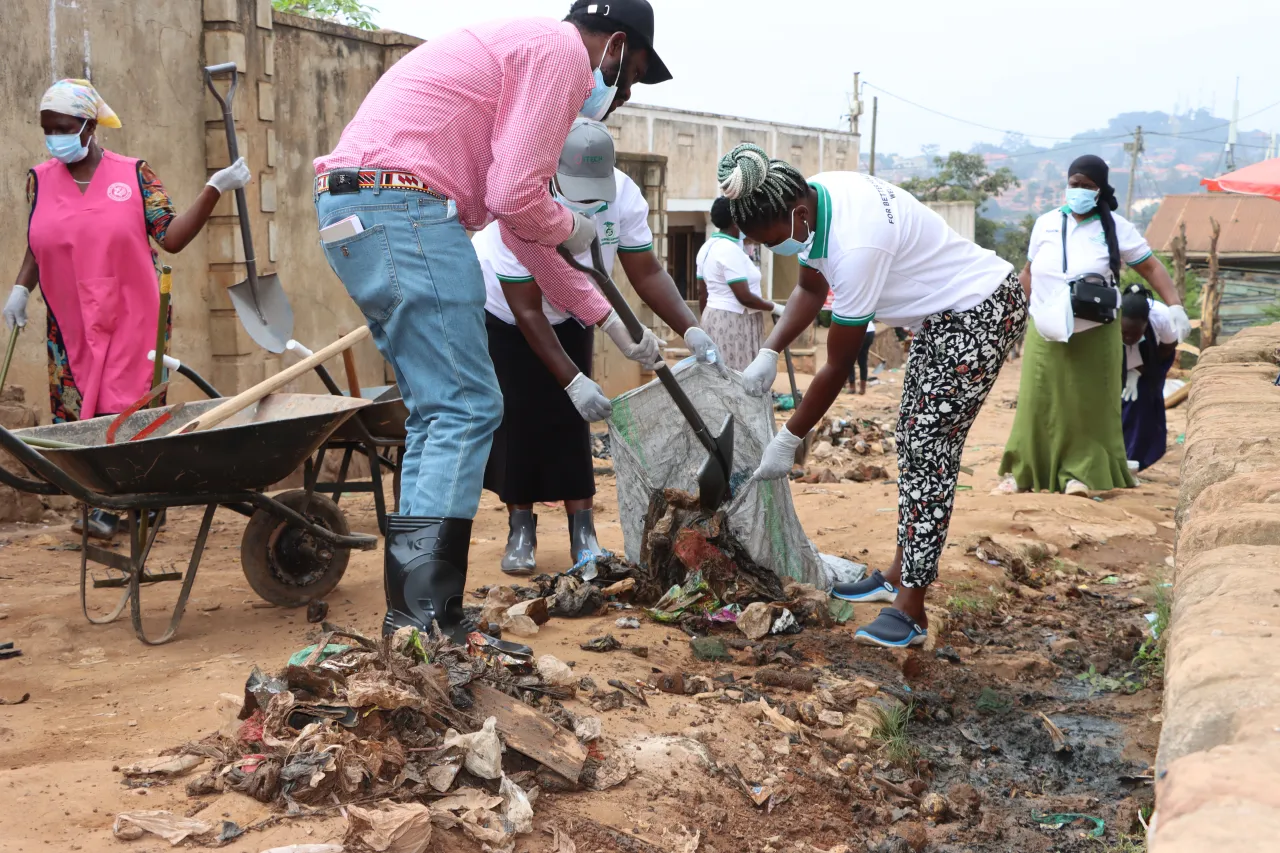
This is a cooperative society which was formed towards the end of 2022 after the community had been trained on how to lobby and undertake advocacy work as well as engaging duty bearers with decision making mandate, influencers, and other stakeholders.
The cooperative is led by Madam Zam, a passionate community mobilizer who believes that their group is not only improving the living conditions in the slums but also saving the government costs associated with garbage collection, such as fuel.
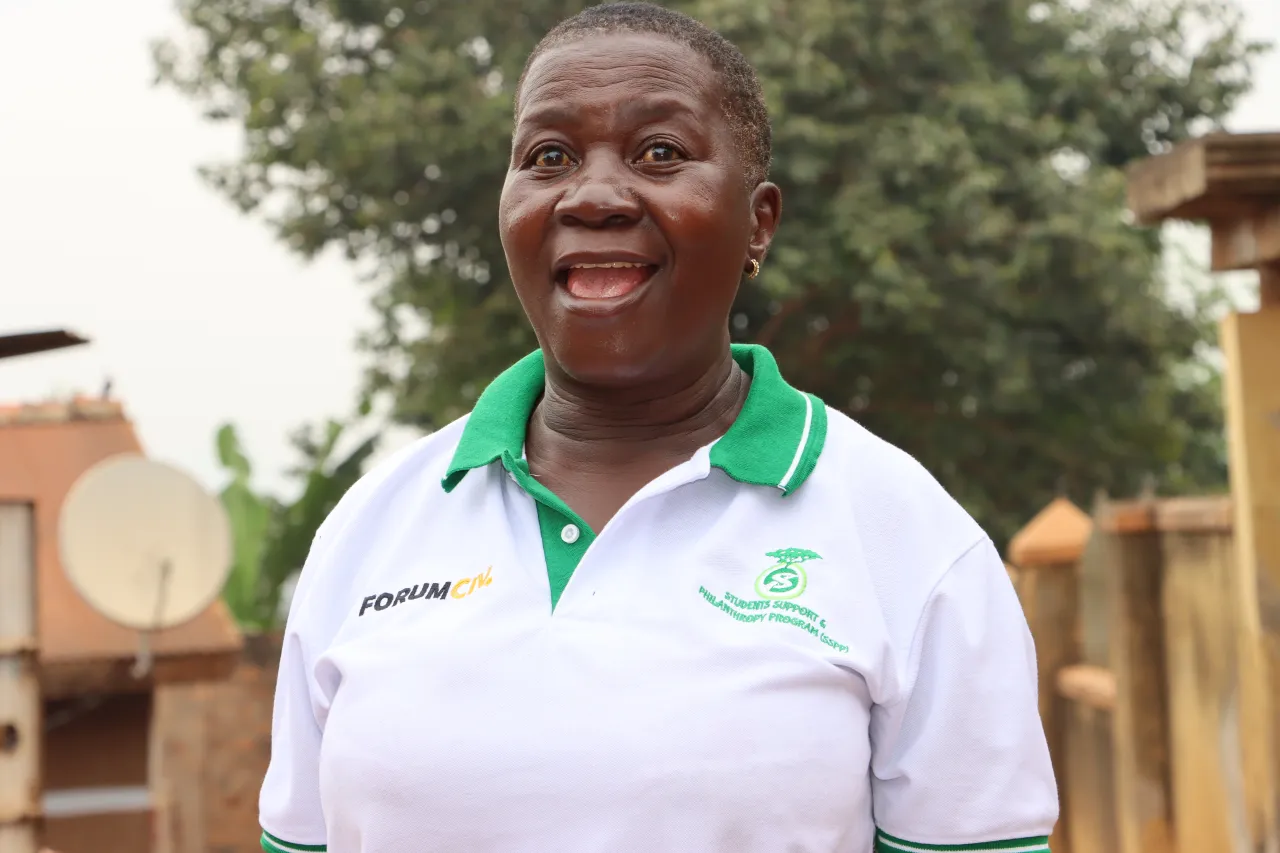
“The motto of the cooperative used to be reduce, recycle, and reuse. We have now changed it to recycle, earn, and save because the people in the cooperative need to earn a living.” Madam Zam, Kawempe Waste Recyclers Lead.
After engagement with ForumCiv and SSPP, the community in Bwaise slums were able to get buy-in from different duty bearers in their efforts to improve waste management in the slum. This included the Minister of State for Trade at the Ministry of Trade Industry and Cooperatives, Honourable Harriet Ntabazi.
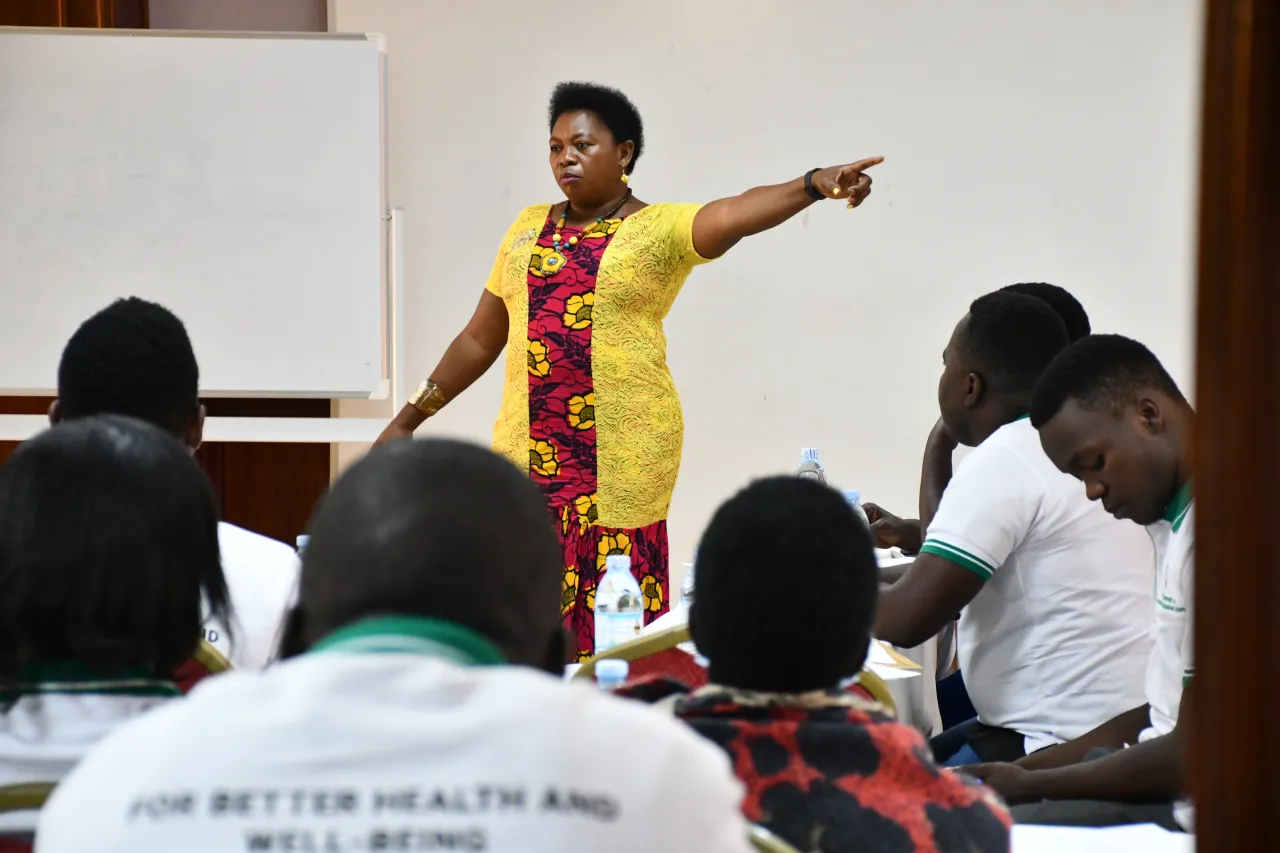
“The Honourable Minister encouraged us to organize ourselves into a formal group so that it becomes easier for us to access funds. She supported us in the process of registration and now she is helping us to get some funds for the cooperative from the government,” said Ntabi Marvin, a community facilitator and a member of the Kawempe Waste Recyclers cooperative.
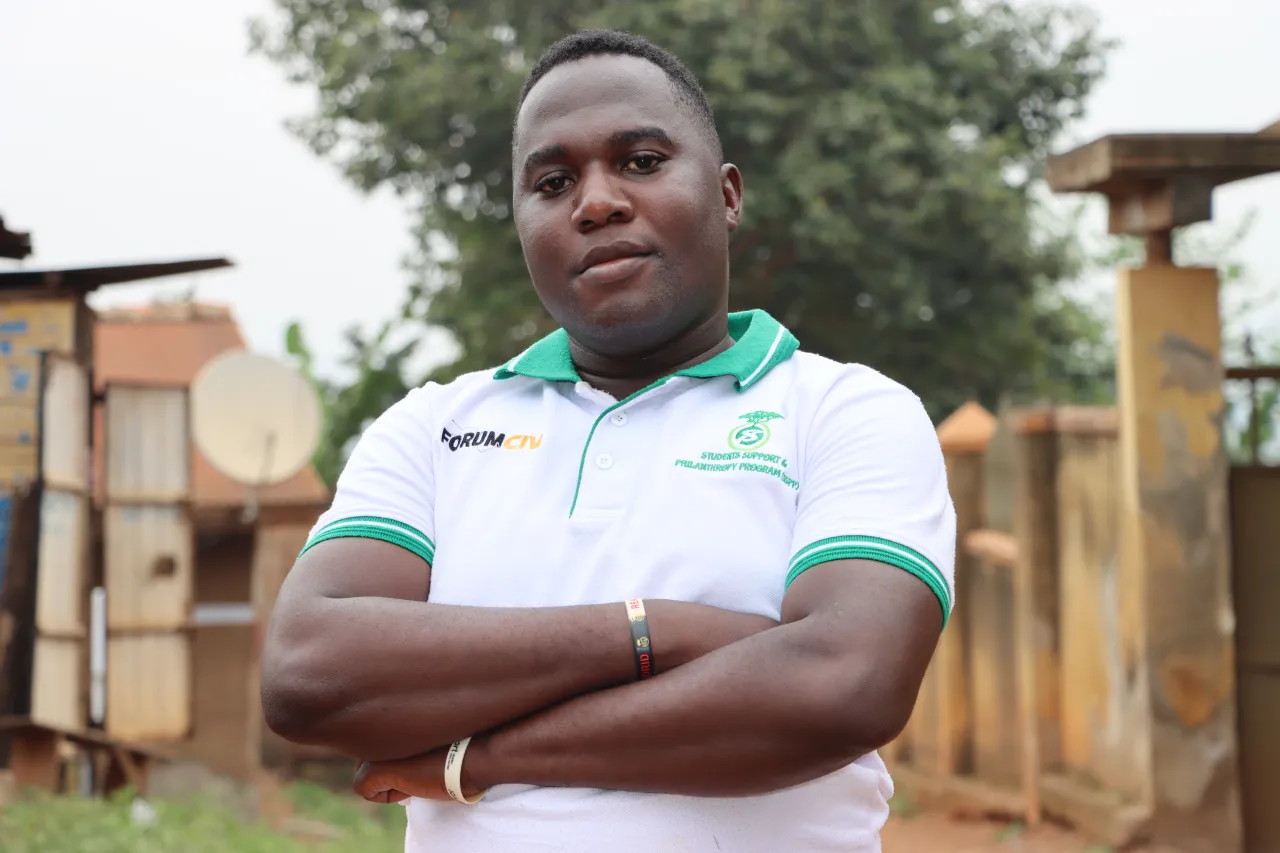
“The cooperative for us is a huge success and a real milestone to show that there is an opportunity for the community to continue sustainably building something that can generate revenue for themselves as they work on their sanitation.” Fiona Hazell- Founding Partner, MAD Foundation.
As Kawempe Waste Recyclers grow, they continue to face some challenges. They require capacity development in financial management, monitoring and evaluation, and overall running of an institution. A huge part of their work is around recycling of waste, but they lack resources such as space and machinery to effectively accomplish this.
Despite these challenges, they have made huge strides and the future looks bright for the cooperative. They recently launched their small office which will be their official place of operation. Most importantly, they have taken ownership of the project.
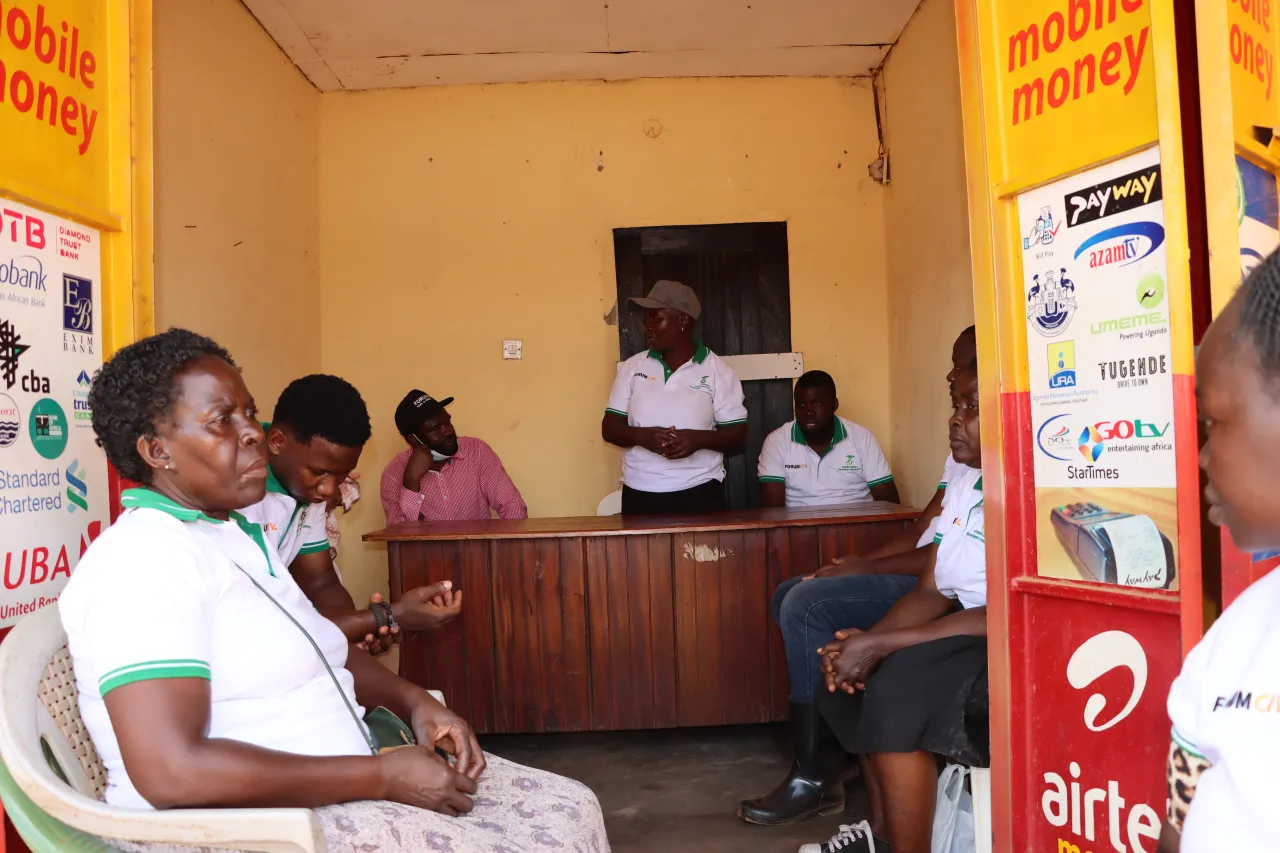
Andra nyheter

The power of people powered Public-Private Partnerships
Public–Private Partnerships (PPPs) are often discussed in terms of roads, power plants, housing, and other large infrastructure projects. But as discussed on the People’s Partnership Podcast, PPPs are...

ForumCiv’s social media accounts labelled as “extremist materials” in Belarus
Important message to our Belarusian followers. Any interaction with our content can now lead to legal consequences in Belarus. Please read the information below and take the necessary precautions for...

ForumCiv enters new strategic partnership
ForumCiv is proud to announce a new three-year strategic partnership with Sida, totalling SEK 137 million.